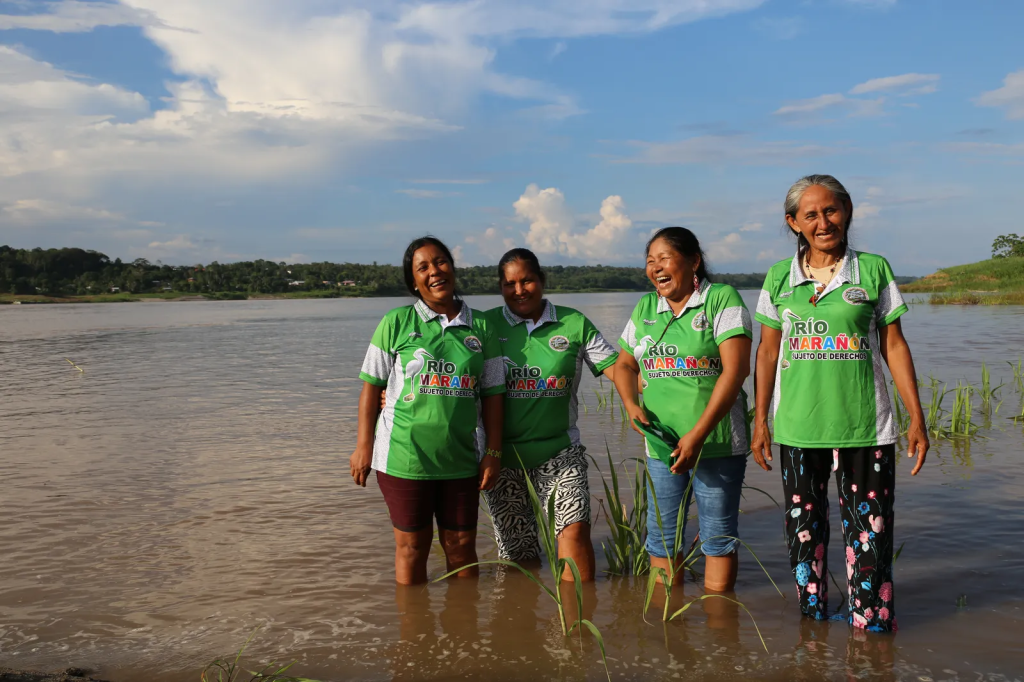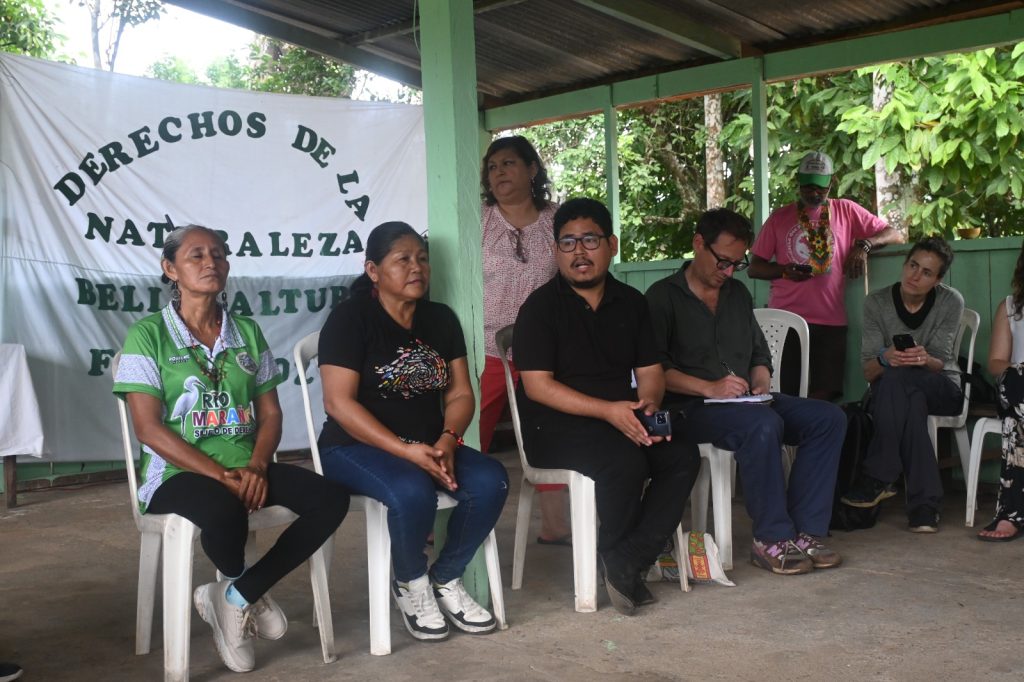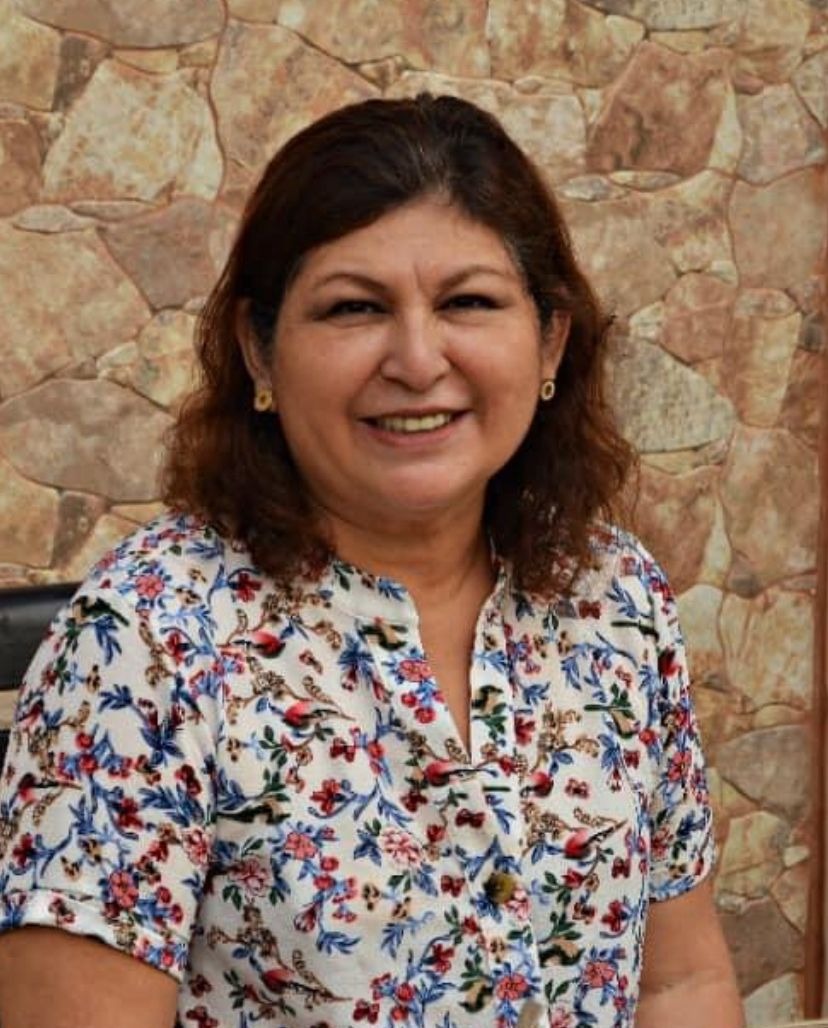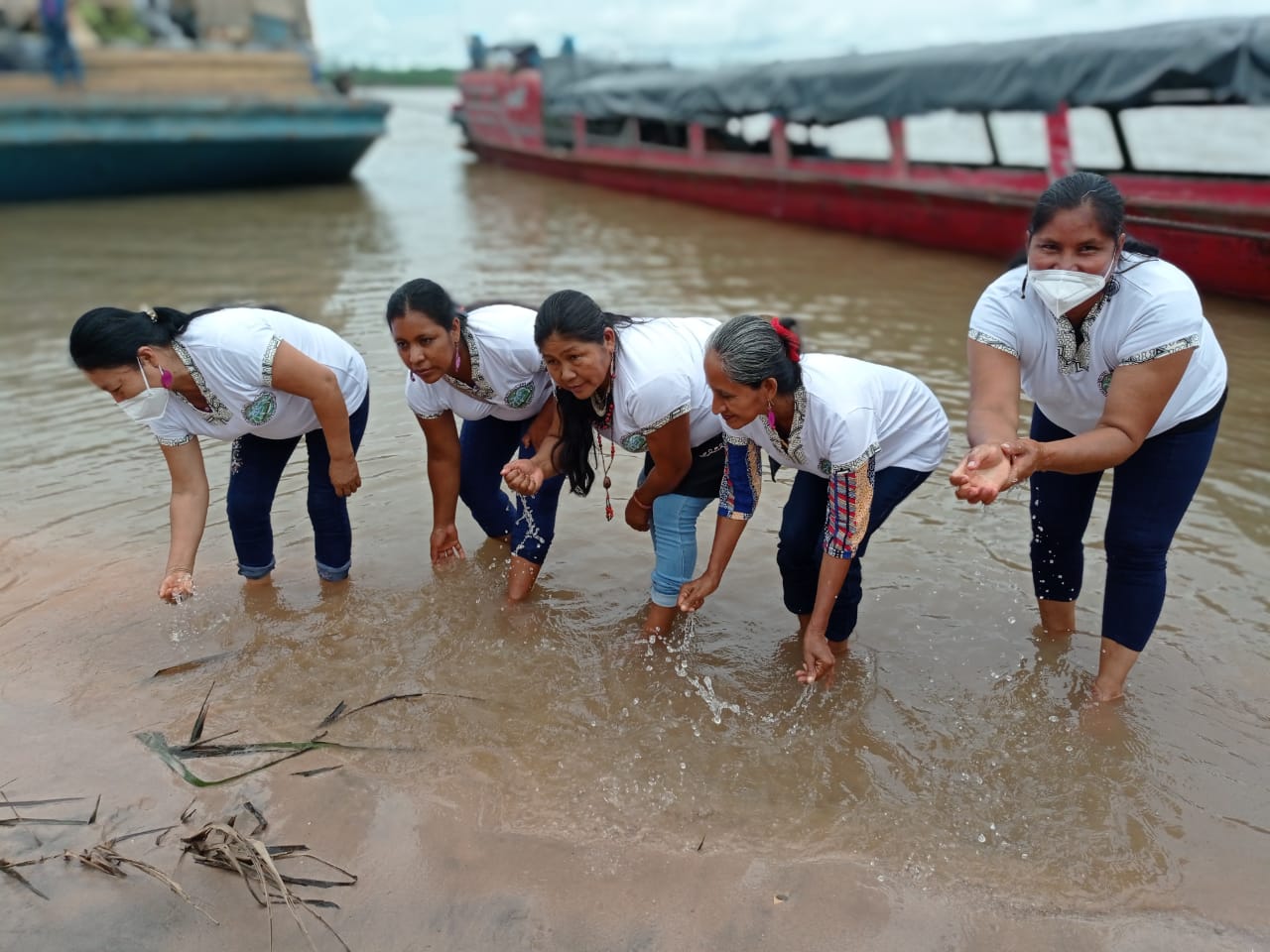In Loreto, the women of the Kukama people succeeded in getting the Peruvian justice system to recognize the Marañón River as a legal entity with rights. Driven by the belief that "the river is people," the women convinced the judges that if the oil companies were to kill the Marañón, they would also be killing their community. Additionally, they ensured that the revenue from the royalties was used for the benefit of the communities and halted the construction of the Transmission Line and Waterways projects. These achievements were made in a country whose legal framework is less favorable to the rights of nature compared to others. In this way, they have established new jurisprudence in creating legal protections for nature, resisting the advance of mining, the forestry industry, and the expansion of the agricultural and livestock frontier.
When discussing the rights of nature in the Amazon, a common underlying theme often emerges: the need to protect the Amazonian forests, rivers, and territories from rampant and predatory extractivism. In this context, the experience of the Federation of Indigenous Women of the Kukama Kukamiria people, “Huaynakana Kamatahuara Kana”, from the Loreto region of Peru, and their struggle to protect the Marañón River, one of the two largest tributaries of the Amazon River, serves as a representative example of resistance movements in the territory. The recent legal victory declaring the Marañón River a legal entity with rights is an emblematic and inspiring milestone in this struggle.
The long fight for the rights of the Marañón River stems from 50 years of the coexistence with Petroperú’s Norperuano Pipeline and the 63 oil spills recorded by the Supervisory Body for Investment in Energy and Mining (Osingermin). After numerous strikes, protests, conflicts, complaints, and deaths, the struggle for the Marañón needed to break the cycle of protest, repression, “dialogue tables,” and unfulfilled promises. A turning point was needed. Consequently, the Federation of Kukama Women’s strategy to pursue legal recognition of the river’s rights by the Peruvian state marked a significant shift in power dynamics.
It is worth noting that the legal victories of the Kukama women extend beyond the declaration of the Marañón River as a legal entity with rights. The leaders have ensured that the revenue from the oil companies’ royalties is used to benefit the indigenous communities in the area and meet their basic needs. They have also successfully halted the construction of the Transmission Line and Waterways projects, which, if realized, would further dispossess the Amazonian forests.

The river is people
For the leadership of the Federation of Kukama Women, it was a significant effort to convince their allies and lawyers to understand that the river is not just a natural resource but a living being. “The river is people” was one of their most powerful phrases. Understanding the vision of the Kukama women was a complex task for the Western world because if the Marañón River is a living being, then it should have rights like people. In response, the women had a very compelling argument: if they kill the Marañón River, they also kill the Kukama people.
Consequently, the lawyers associated with the Legal Defense Institute (IDL) found jurisprudential precedents in the Peruvian Constitution to establish the Marañón River as a legal entity with rights. Paradoxically, unlike neighboring countries, Peru does not have a legal framework favorable to the rights of nature. However, through the international treaties signed by Peru that declare nature and biological diversity have intrinsic value, they were able to find a favorable constitutional framework. During the trial, the Kukama women justify the sacred character of the Marañón is sacred, why it is a living being, and why it deserves to be recognized as a subject with its own rights.
As a result, for the Iindigenous, peasant, and Afro-descendant communities of the Amazon who fight for the defense of the rights of nature, the victory of the Federation of Kukama Women is resonant and inspiring. First, because the historical struggle of the Marañón Kukama reflects the experiences of resistance in the Amazon. Secondly, because Peru lacks a favorable legal framework compared to other countries like Bolivia, Ecuador, and Colombia.

The legal path: a feasible battle to defend the Amazon
Following the legal victory of the Kukama women, it became evident that legal frameworks supporting the rights of nature exist throughout the Amazon. If it could be achieved in Peru, it can also be achieved in other countries. The legal path emerged as a route to follow in the battle to defend the Amazon. This tactic was part of a broader strategy that required communicating such experiences across all possible platforms and developing alternative development proposals in a challenging global context.
Recently, during the XI Pan-Amazon Social Forum (FOSPA) hosted in Bolivia, the Kukama women and their legal representatives participated in a panel on Rights of Nature. Leaders from other parts of the Amazon expressed interest in following the legal struggle for the rights of rivers and Amazonian forests. Consequently, they agreed to promote a series of actions to coordinate river defenders and to continue participating in the working group on Rights of Nature.
This working group is tasked with promoting a collective statement declaring the Amazon as a Subject of Rights at the United Nations Conference on Biodiversity (COP16), scheduled for October 21 to November 1, 2024, in Cali, Colombia. Thus, the struggle of the Kukama women in defense of the Marañón River continues to influence various international dialogue spaces. “The river is people,” and the Kukama aim to continue protecting the rights of nature.

Peter Leys is a researcher at Roskilde University (Denmark) and an Associate Researcher at Forum Solidarity Peru.

Miriam Torres is a Gender Specialist and Director of Forum Solidarity Peru.
